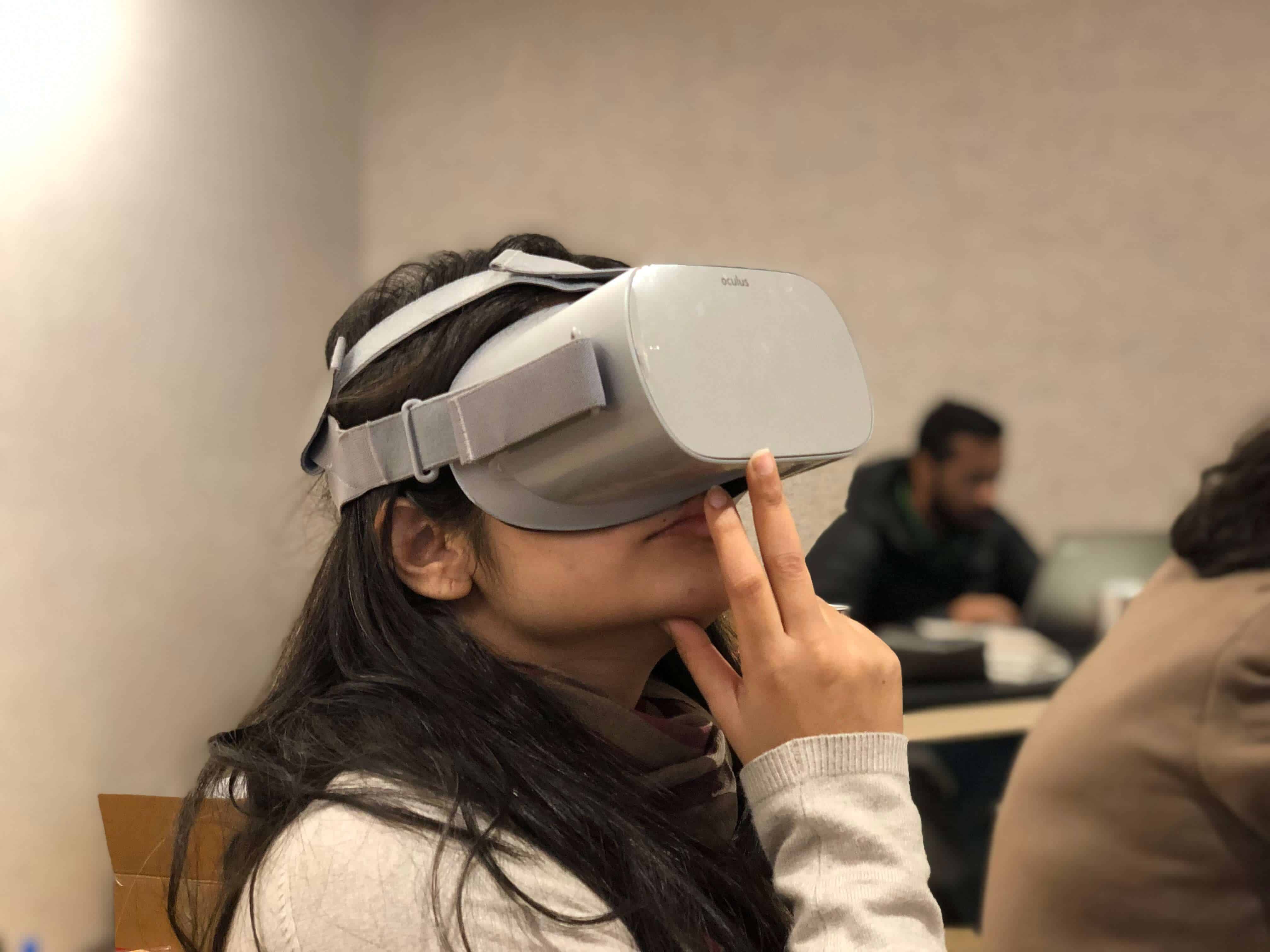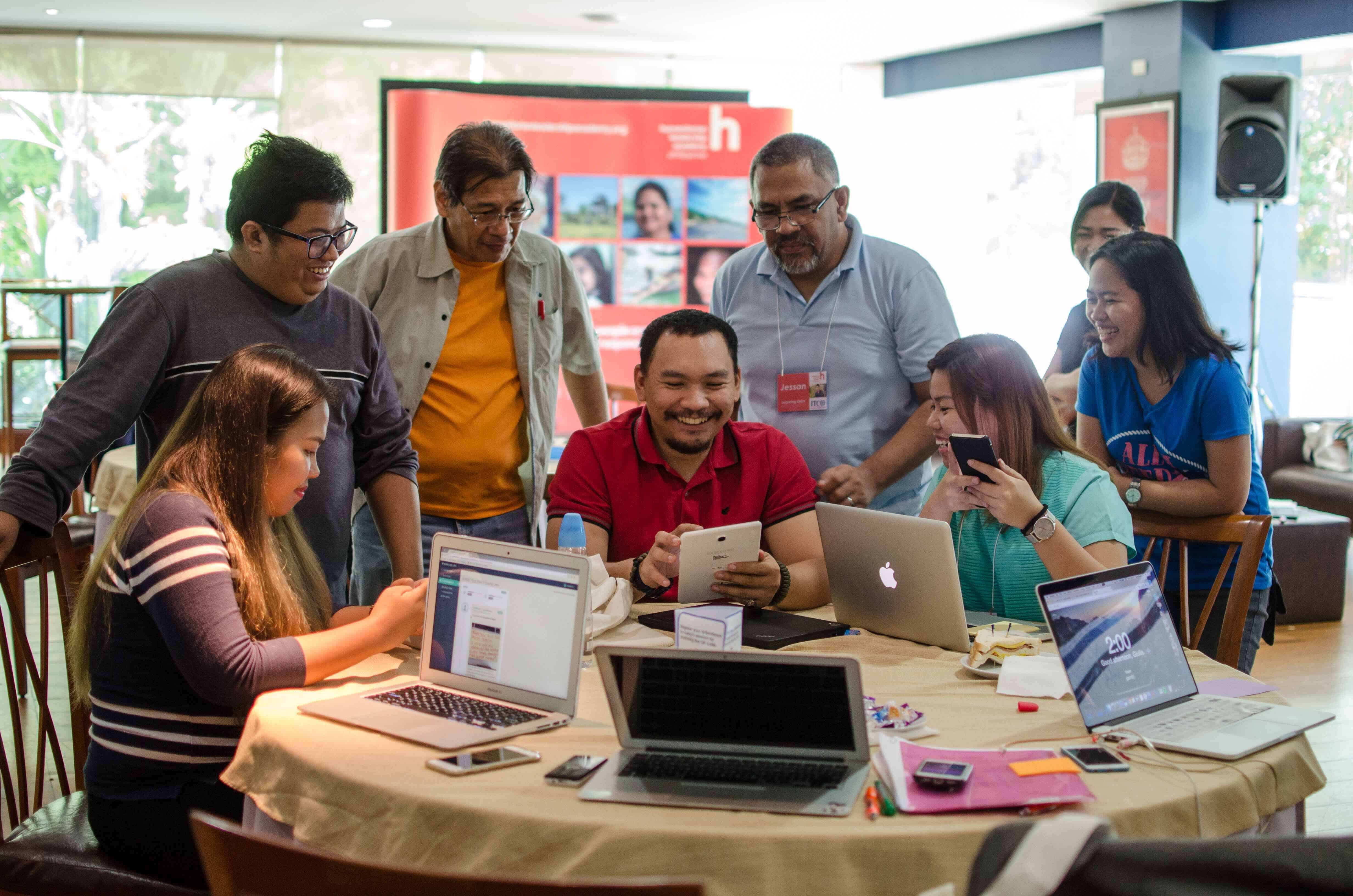Learning Transformation
Interview with Atish Gonsalves, Global Innovation Director, Humanitarian Leadership Academy
It’s that time of year again—our annual Speexx Exchange conference, hosted by Laura Overton, is right around the corner! This leading industry event on talent management practices brings together learning and development (L&D) practitioners from around the world for a fulfilling day of networking, sharing and learning in Berlin. This year, we’ll be hearing various business case studies on learning transformation trends in the context of this digital era, and how best to develop a culture of learning in modern organizations.
Can’t wait until the end of November? Read on for a special sneak peek—we’ve talked to Atish Gonsalves, Global Innovation Director at the Humanitarian Leadership Academy (the Academy), to get his perspective on how an organization can successfully adapt a culture of learning; the Academy’s new Virtual Reality-based “soft skills simulator”; and the difference between “the future of learning” and “learning for the future.”
In your own words, what does the Academy do and what is your role within it?
The Humanitarian Leadership Academy is an initiative which was set up with the goal of supporting aid workers, particularly local aid workers, to be better prepared to respond to disasters.
The Academy has been set up as a “learning platform” in the broadest sense. This means a learning platform that is both digital, where we reach 120,000+ aid workers via our learning platform, Kaya, as well as a physical network of partners in a number of countries, like Kenya, the Philippines, Bangladesh, Jordan, Lebanon, Syria, Yemen and more.
Our goal is to combine a scalable digital platform with local presence to ensure the learning we’re developing is geared to local organizations that are at the front line of disasters.
Unfortunately, in many countries seeing a need for humanitarian response right now, aid workers face challenges like Internet access, bandwidth, even staff safety sometimes. But still they demonstrate a clear interest in digital learning, even in the hardest-to-reach areas.
As for my role at the Academy: I was initially responsible for the Kaya platform learning strategy and implementation among our local partners. I’ve since moved to an innovation role, now serving as Innovation Director. I’m responsible for scanning emerging technologies, methodologies and content. This includes testing and scaling successful technologies and methods through Kaya. Examples of these include game-based learning, Virtual Reality, AI, chatbots – all with the goal of making learning more engaging, interesting and relevant for our end users.

What does learning transformation mean, in your opinion?
Learning transformation means a couple of different things to me. One thing I am quite passionate about, especially when it comes to innovation, is how learning can be used as a tool for enabling others to create, and to share more learning with others.
I think about it this way: The most powerful technology is that which lets people create versus just consume. So when we develop content that goes on Kaya, we work with local organizations to co-create some of the innovative learning products using tools like design thinking to ensure it’s not only being consumed in the front lines of humanitarian response, but also being co-created there as well, with the organizations who best understand the needs of a given disaster, or the context of the region.
For me, transformation, in that sense, means learning should be much more about not just delivering knowledge, but ensuring that the learners are very much part of that co-creation process as well.
The other way I think about learning transformation has more to do with scale: I think there is a tendency for us to try to scale learning, something we’ve been trying to do with platforms like Kaya. But transformative learning is also about human connection, so if you think about learning at its very fundamental level, it’s about storytelling, shared experiences, practicing that knowledge that you gain in a safe way.
The analogy I subscribe to here is that it’s like learning to drive a car by reading about it or watching it versus actually doing it – we need to think the same way about other types of competencies, and learning not being merely something that is consumed but something that is active and created.
In the end, it’s not just practice-based competency, and instead about human storytelling and engagement. I think that’s where learning becomes much more transformative – when you’re able to do that. Even at scale, ensuring you’re not losing that human engagement.
What does “formal” learning look like for the Academy, especially as many of your end-users require such a wide range of skill sets – hard and soft? How can you programmatize and measure this kind of learning?
There are, of course, formal qualifications when it comes to social work and international relations.
When it comes to humanitarian work, specifically, there tends to be a varied range of skill sets. From the more technical, like understanding international human rights, various legal frameworks, and so on, to the softer skills, like working in complex environments, stress and wellness, especially when you’re working continuously in periods or places of high volatility and uncertainty, or managing teams in disaster zones.
As such, our learning tends to focus on being informal and continuous: Ensuring that frontline responders, that both professional aid workers who work in organizations like the UN or local NGOs, as well as volunteers – people who work for the Red Cross, and volunteer organizations – have the right skills and tools at their disposal.
Having said that, we’ve also been leading an initiative called HPass, which is trying to look at a different way of credentialing aid workers and addressing the need for consistent professional development and learning for humanitarians.
We’re trying to align skill credentials to competencies, especially as humanitarians and volunteer workers move frequently between organizations and locations, and need their skills and experiences to be recognized quickly, to then be deployed as fast as possible.
For example, if you work at Oxfam or the Norwegian Refugee Council and you completed a training and got a digital “badge” for safety and management, or security management, or accountability, then that badge would be immediately recognized at another organization, like, say, Save the Children, when you move to that organization.

What are some of the challenges you’ve faced during these transformations and the impact these changes made to your organization?
Because we are looking at digital learning as a way to scale transformation within organizations, you can imagine that a lot of the challenges we face in the countries in which we work are in relation to bandwidth, digital literacy access, etc. Not only that, but we are seeing that the traditional e-learning or self-guided learning may not be sufficient.
As such, we’re looking at game-based learning, Virtual Reality, and chatbots . These innovations all offer opportunities for engaging learners and creating more human engagement, but they come with additional challenges – for instance, how do you get VR access or VR gear to people in more countries?
This is something I’ll talk more about during my presentation at Speexx Exchange, but at a glance: We are creating a soft skills simulator using VR, where you’re put into a difficult conversation with someone who has been through a difficult situation. You need to respond effectively and empathetically to that person and his or her situation. You then virtually “swap” into the body of the person that you have just spoken with, and hear yourself having dealt with that situation. This gives you the opportunity to both self-assess yourself, and how you responded to that, as well as get a basic AI semantic analysis of the words you used.
As you can imagine, there’s tremendous potential for using this type of technology in dealing with training situations for complex scenarios, but it comes with the challenge of scaling – how do you roll this out? Especially in places with “low” tech, or poor bandwidth. These are challenges on the tech side.
On the non-technology side, it’s a bit more of understanding the learning within different organizations. I think there is still a bit of a gap in understanding the difference between knowledge and learning, and I think there is sometimes a tendency to rely on knowledge-based products, and just say, “Okay. Everyone has access to these policy documents in an e-learning format; now, they’re all aware of safety and security in a certain scenario.”
That doesn’t necessarily mean there have been behavioral changes, however. The example I gave of the VR soft skills simulator – that is an example of how you could ideally really have behavioral change. I think the difference between “knowledge” and “learning transformation” is not fully understood.
Again, lots of e-learning products are accepted as “learning” transformation, when they really aren’t. In our sector, you’ll find that a lot of organizations are lacking in funding, or other resources. It’s therefore understandable that L&D might not always figure as one of the top 10 priorities within the organization, and that’s where we try to help.
What does learning in the future look like for the Academy?
This is also something I’ll discuss a lot at Speexx Exchange – and in two ways: The future of learning, and learning for the future.
With the first, I mean the new ways we will and should be learning; using methodologies, tools which are much more human-to-human centric, encouraging much more of sharing, co-creation storytelling scenarios into learning processes. Things like game-based learning, where, if you do a course on coaching and mentoring it’s probably a good idea that you also practice those coaching skills through some type of scenario.
In this instance, we’ve created a coaching and mentoring game, where after having completed a self-guided course, you can pair up with someone and take turns coaching each other. And you can be in different locations and do this asynchronously.
The future of learning, for us, includes a lot of that “cool” tech: Things like VR, as I mentioned, for creating soft skills simulators; chatbots for co–creating more interesting scenarios, increasing stickiness and engagement. But I think that beyond tech, it’s how you bring more of that human element; so the tech is actually increasing more human engagement versus decreasing. There are a lot more trends that we’ll keep scanning and adopting.
The other area I mentioned is training for the future – what are the skill sets, competencies, etc. you need to be focusing on. What are the skill sets and jobs in the aid sector; we’re looking at things like building emotional intelligence or emotional relationships over digital media. How are people able to better use digital collaboration tools to build better virtual teams and managed complex conversations, we’re looking at things like dealing with massive amounts of information and in some cases misinformation, being able to identify authentic information in a vast area of misinformation – these are practical skill sets that people need to be upskilled on.
About the speaker

Atish Gonsalves is a social technologist, entrepreneur and the Global Innovation Director of the Humanitarian Leadership Academy. With a background in software engineering, AI and human-computer interaction, Atish’s experience includes leadership roles at technology and international non-profit organisations. Atish has consistently implemented successful educational-technology (edtech) solutions that have helped democratize learning for thousands of learners in difficult contexts. Atish is also the founder of Gamoteca, a collaborative digital platform that enables organisations create their own mixed-reality learning games.
To discover more about learning transformation from Atish and other industry experts, register now for Speexx Exchange Berlin 2019! The conference will be held on Wednesday, November 27 from 9 am to 5:30 pm at the Hotel InterContinental Berlin, ahead of the international event, OnlineEducaBerlin. The Speexx Exchange conference is free of charge for friends and partners of Speexx!
